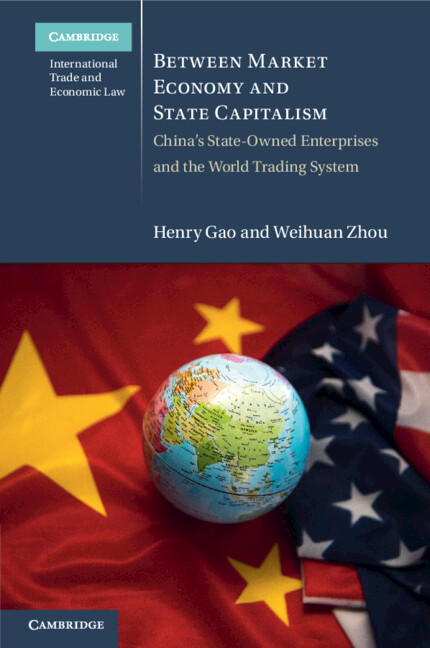Between Market Economy and State Capitalism
One major issue facing the world trading system today is how to deal with the challenge of China's state capitalism. Many commentators believe that the existing WTO rules are insufficient and, thus new rules are needed. This book challenges this conventional wisdom. Through meticulous studies and fresh analysis of the commitments in China's WTO accession package, existing rules on state capitalism in WTO agreements and recent attempts to make new rules on these issues at the bilateral, regional and multilateral levels, this book argues that existing WTO rules, especially those on subsidies, coupled with China-specific rules in its accession protocol, do provide feasible tools to counter China's state capitalism. This book also discusses the reasons for the lack of usage of these rules and provides concrete policy suggestions on how the rules may be better utilized, as well as how to conduct constructive negotiations on new rules in the WTO and beyond.
- Provides a comprehensive analysis of the key features of China's reforms of state-owned enterprises
- Provides a critical analysis of existing WTO rules that may be applied to deal with state capitalism
- Provides policy and practical recommendations for how to use existing WTO rules to deal with China and how these rules may be further improved
Reviews & endorsements
‘Henry Gao and Weihuan Zhou have done the nearly impossible—unpacked the relationship between the triumph of China and the decline of the WTO while presenting a compelling challenge to the conventional wisdom that WTO rules are inadequate to address Chinese state capitalism. A must read for those looking to understand how China’s economic model impacts the world and its trading system.’ Jennifer Hillman, Co-Director of Center of Inclusive Trade and Development and Professor from Practice, Georgetown University Law Center
‘This is a very useful contribution destined for all students and practitioners of international trade. The authors address the core question that has been recently plaguing the world trading regime, namely, to what extent the regime choice is prejudged by the letter and the spirit of the current multilateral disciplines. It is no exaggeration that that the future policy relevance of the WTO hinges on the response to this question.’ Petros C. Mavroidis, Edwin B. Parker Professor of Foreign & Comparative Law, Columbia Law School, New York City
Product details
November 2024Paperback
9781108828499
223 pages
229 × 152 × 12 mm
0.331kg
Available
Table of Contents
- 1. China, state capitalism and the World Trading System
- 2. The evolution of China's reforms of State-Owned Enterprises (1978–2020)
- 3. State capitalism in China's accession to the WTO: concerns and solutions
- 4. The limits of general WTO rules
- 5. The potential of WTO rules on industrial subsidies and China-specific obligations
- 6. Emerging approaches to regulating State-Owned Enterprises: the comprehensive and progressive agreement for Trans-Pacific Partnership (CPTPP) and Post-CPTPP free trade agreements
- 7. Tackling China's state capitalism: WTO litigation and trade negotiation
- 8. Conclusion: the potential of multilateralism.







